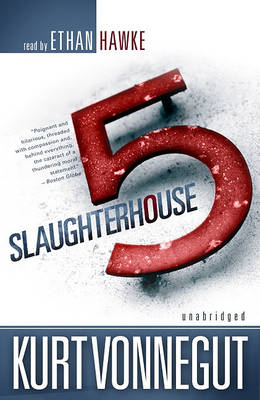And Lot’s wife, of course, was told not to look back where all those people and their homes had been. But she did look back, and I love her for that, because it was so human.
So she was turned into a pillar of salt. So it goes.
— Chapter 1, Slaughterhouse-Five
I meant to write how I love this book more every time I read it, Mary O’Hare and Roland Weary and the Children’s Crusade, but I went in search of something I read Vonnegut saying once and fell down a rabbit hole of conversations between him and Joseph Heller, and spent just as much time there as I did reading the book itself. Which— just the fact that these two were friends should mean that some days the world manages things OK.
Their interview with Playboy in 1992 is as good a place as any to start, but where I wound up was at the review mentioned briefly there, Vonnegut’s review of Heller’s Something Happened, where Vonnegut says this about the molasses-like cautiousness of accepting certain books as important ones:
“To accept a new myth about ourselves is to simplify our memories— and to place our stamp of approval on what might become an epitaph for our era in the shorthand of history. This, in my opinion, is why critics often condemn our most significant books and poems and plays when they first appear, while praising feebler creations. The birth of a new myth fills them with primitive dread, for myths are so effective.”
And Vonnegut, like Heller, is no feeble creation. They write jokes, yes, and one writes science fiction, but all the best jokes are dangerous, because they’re truthful, and all the successful jokes start as a threat to someone or something. And science fiction, well:
Rosewater was twice as smart as Billy, but he and Billy were dealing with similar crises in similar ways. They had both found life meaningless, partly because of what they had seen in the war. Rosewater, for instance, had shot a fourteen-year-old fireman, mistaking him for a German soldier. So it goes. And Billy had seen the greatest massacre in European history, which was the firebombing of Dresden. So it goes.
So they were trying to re-invent themselves and their universe. Science fiction was a big help.
In the same interview in McSweeney’s, sans Heller this time, Vonnegut says he avoids irony, that he doesn’t like people saying one thing and meaning the other, and it stopped me right there. I had to think about that, because I would have always pegged books like Catch-22, like Slaughterhouse-Five with praise for their irony. But I think there’s something to that. What they do works like irony in that it points out the absurdity, but it works so much better because it’s not saying one thing and meaning the opposite, it’s saying one thing and meaning it for real— it only seems like the opposite when it doesn’t sound like what we expect to hear. So you can have epitaphs like Billy Pilgrim’s, “Everything was beautiful and nothing hurt,” and it doesn’t cut to your heart because it means the opposite, it cuts because of the sadness that in one real way it’s true. And I don’t know, I’m just thinking out loud here, but that’s what I like about Vonnegut, about Heller, their two books like twins in all the ways twins are alike and different. There’s no moral written into their stories. It’s just the way things were, and you dig around in them, and you unearth from them the things you need to carry with you.
One of my favorite lines Vonnegut ever wrote is from God Bless You, Mr. Rosewater— in true Vonnegut form, the same Rosewater as above. It goes:
Hello, babies. Welcome to Earth. It’s hot in the summer and cold in the winter. It’s round and wet and crowded. At the outside, babies, you’ve got about a hundred years here. There’s only one rule that I know of, babies — “God damn it, you’ve got to be kind.”
And yet, babies: all of this happened, more or less.
Chapter 1, Slaughterhouse-Five, again:
It is so short and jumbled and jangled, Sam, because there is nothing intelligent to say about a massacre. Everybody is supposed to be dead, to never say anything or want anything ever again. Everything is supposed to be very quiet after a massacre, and it always is, except for the birds.
And what do the birds say? All there is to say about a massacre, things like “Poo-tee-weet?”
